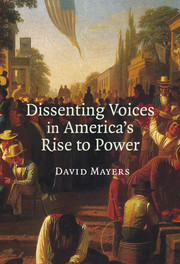8 - Philippines
from Part II - Conquests
Published online by Cambridge University Press: 05 June 2012
Summary
Compressed acculturation marked not only post-Civil War Indian policies. It also influenced the exercise of US power beyond New World confines. The impulse before 1898 had been to Americanize Indians and foreigners within national borders. The aim thereafter expanded to Americanize overseas foreigners reachable by US power. President William McKinley pursued this project in the Philippines: “benevolent assimilation.” It featured ethnocentric zeal comparable to that practiced upon Native America.
The majority view never doubted the generosity or brilliance of works accomplished in the Philippines. They served as site where duty consistent with the “white man's burden” could be gallantly discharged. The archipelago advertised the universality of US institutions. Theodore Roosevelt said in 1913 with characteristic gusto:
We established schools everywhere; we built roads; we administered an even-handed justice; we did everything possible to encourage agriculture and industry; and in constantly increasing measure we employed natives to do their own governing … our whole attention was concentrated upon the welfare of the Filipinos themselves, if anything to the neglect of our own interests.
Yet some Americans involved in the Philippines did wonder whether the islanders had the requisite mental apparatus to improve themselves. Parliamentary democracy, Protestantism, entrepreneurial energy, English literacy, and elementary hygiene might forever elude the Filipinos. In this case, the unfortunates, already handicapped by three centuries of Spanish misrule, would endure unchanging backwardness. The lowly folk might salvage what they could in the face of US superiority, exactly like North American tribes clinging to their shriveling reservations.
- Type
- Chapter
- Information
- Dissenting Voices in America's Rise to Power , pp. 190 - 218Publisher: Cambridge University PressPrint publication year: 2007



